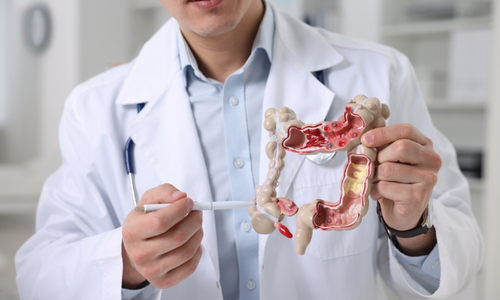Your digestive system is more than just a place where food gets broken down; it’s essential for overall health and well-being. From nutrient absorption to energy production, a healthy gut keeps everything running smoothly. But what happens when things go wrong? That’s where a gastroenterologist steps in. In this guide, we’ll dive into expert tips for maintaining digestive health and when it’s time to seek professional help.
Understanding Digestive Health
What is Digestive Health?
Digestive health refers to the proper functioning of your digestive system, which includes your stomach, intestines, liver, and pancreas. A healthy digestive system efficiently processes food, absorbs nutrients, and eliminates waste.
Why Digestive Health Matters
Poor digestive health can lead to various problems like bloating, indigestion, and even chronic conditions such as IBS or Crohn’s disease. Maintaining good digestive health ensures that your body gets the nutrients it needs and helps prevent discomfort and long-term issues.
Common Digestive Problems
Heartburn and Acid Reflux
Heartburn and acid reflux are common complaints that occur when stomach acid moves back into the esophagus, causing discomfort and a burning sensation. Frequent acid reflux may lead to more severe issues like GERD (Gastroesophageal Reflux Disease).
Irritable Bowel Syndrome (IBS)
IBS is a chronic condition affecting the large intestine, causing symptoms like cramping, abdominal pain, bloating, and diarrhea or constipation. It’s often triggered by stress, certain foods, or changes in routine.
Constipation and Diarrhea
These two conditions are at opposite ends of the spectrum but both affect digestive health. Constipation can result from a lack of fiber or hydration, while diarrhea is often caused by infections, food intolerances, or gastrointestinal disorders.
Top Tips for Digestive Health
Stay Hydrated
Water plays a key role in digestion by helping break down food and ensuring smooth bowel movements. Aim for at least 8 cups of water per day to keep your digestive system functioning well.
Eat Fiber-Rich Foods
Fiber is essential for a healthy gut. It helps to regulate bowel movements and prevent constipation. Incorporate plenty of fruits, vegetables, whole grains, and legumes into your diet to keep things moving smoothly.
Practice Mindful Eating
Mindful eating can help prevent overeating and improve digestion. Eating slowly and chewing your food properly allows your digestive system to process food more efficiently, reducing bloating and discomfort.
The Role of Probiotics
What Are Probiotics?
Probiotics are beneficial bacteria that live in your gut and aid in digestion. They help maintain the balance of microorganisms in your intestines, which is essential for overall gut health.
Probiotics and Gut Health
Probiotic-rich foods like yogurt, kefir, sauerkraut, and kombucha can boost the levels of good bacteria in your gut, improving digestion and reducing the risk of issues like IBS.
Exercise and Its Impact on Digestion
How Physical Activity Affects Your Gut
Regular physical activity can help keep your digestive system in shape. Exercise increases blood flow to the organs, stimulating digestion and reducing symptoms like bloating and constipation.
Simple Exercises for Digestive Health
Try incorporating activities like walking, yoga, or cycling into your daily routine. Even a brisk 30-minute walk can promote digestion and help prevent constipation.
Stress and Digestive Health
How Stress Affects the Gut
Stress can have a significant impact on your digestive system, leading to issues like bloating, stomach pain, and IBS flare-ups. The gut and brain are closely linked through the “gut-brain axis,” which is why emotional stress often manifests in digestive problems.
Stress Management Techniques
Incorporating relaxation techniques like meditation, deep breathing, and mindfulness can help manage stress and improve gut health. Reducing stress levels may alleviate many digestive symptoms.
Avoiding Harmful Habits
Smoking and Digestive Issues
Smoking negatively affects your digestive system by weakening the muscle that controls the lower esophagus, which can lead to acid reflux and GERD.
Alcohol’s Impact on Digestion
Alcohol can irritate your digestive tract and lead to problems such as acid reflux, gastritis, and even liver disease. Moderation is key when it comes to maintaining a healthy gut.
When to See a Gastroenterologist
Symptoms to Watch For
If you’re experiencing chronic digestive symptoms like persistent bloating, pain, constipation, diarrhea, or blood in your stool, it’s time to consult a gastroenterologist. Early intervention can prevent more serious issues from developing.
Preventative Screenings
Routine screenings like colonoscopies are essential for detecting digestive diseases early. Speak with your gastroenterologist about when you should begin regular screenings based on your family history and risk factors.
Conclusion
Maintaining digestive health is about more than just avoiding discomfort—it’s key to your overall well-being. By following these tips, incorporating probiotics, staying hydrated, and managing stress, you can keep your digestive system in top shape. If you’re ever in doubt, don’t hesitate to reach out to a gastroenterologist for advice and regular check-ups.
FAQs
What foods should I avoid for better digestive health?
You should limit foods high in fat, processed sugars, and spicy items, as they can irritate the digestive system and lead to issues like acid reflux and bloating.
How does sleep affect digestion?
Poor sleep can disrupt the digestive system, leading to problems like bloating, constipation, and increased acidity. Aim for 7-8 hours of quality sleep each night to keep your digestive system healthy.
Can exercise really improve digestion?
Yes! Regular physical activity stimulates digestion and can help prevent constipation. Even moderate exercise like walking can improve digestive health.
What role does stress play in gut health?
Stress can trigger or worsen digestive issues like IBS or acid reflux. Managing stress through relaxation techniques is essential for maintaining a healthy digestive system.
How often should I see a gastroenterologist?
If you’re experiencing persistent digestive issues or are over 50, it’s wise to schedule regular check-ups. Preventative screenings like colonoscopies are crucial for early detection of digestive diseases.

